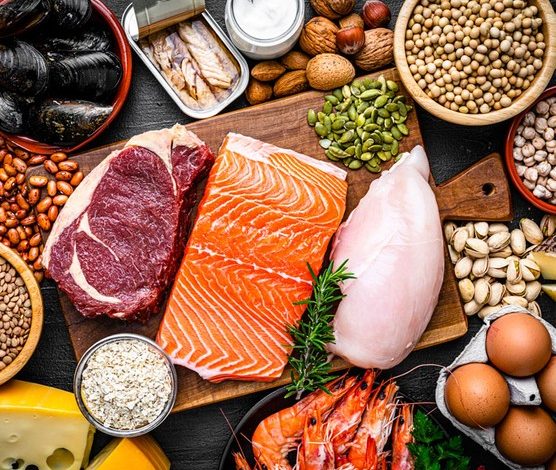From raw eggs to protein shakes, those looking to build muscle are often encouraged to consume large amounts of protein, BBC reports.
But how much is really necessary, and what’s the best way to get it?
Sophia Moulson, a 21-year-old fitness influencer from West Sussex, started focusing on fitness at 19 after struggling with her weight. She turned to exercise not only to lose weight but also to build strength and confidence.
Nutrition played a key role in her transformation, and she soon realized the importance of protein. As a vegetarian, she initially found it difficult to get enough protein from food alone and turned to protein powders for convenience.
“While it was possible to meet my needs through a well-balanced diet, it often required time and careful planning,” she explains.
Moulson’s experience is not unique. Many people seeking to gain muscle turn to protein supplements, but do we really need large amounts to grow stronger?
Protein is essential for the body, serving as the building blocks for muscles, enzymes, and even skin and hair. When consumed, proteins break down into amino acids, which the body then uses to repair and grow tissue.
However, the amount of protein needed varies from person to person. According to Linea Patel, a sports dietitian at Pure Sports Medicine in London, the general recommendation for sedentary adults in the UK is around 0.75–0.8 grams per kilogram of body weight. For example, a person weighing 70 kg (154 lbs) would need about 56 grams of protein per day.
Most people already consume this amount through their daily diet. In the US, for example, protein intake typically makes up about 14-16% of total calories.
However, those who exercise regularly, particularly athletes or bodybuilders, may require 1.6–2.2 grams of protein per kilogram to maximize muscle growth. Additionally, older adults and postmenopausal women often need more protein to help maintain muscle mass.
Many health professionals recommend getting protein from food sources whenever possible. Options vary depending on dietary preferences:
- Omnivores: Lean meats, fish, eggs, and dairy
- Vegetarians: Eggs, yogurt, cheese, and legumes
- Vegans: Soy products, nuts, seeds, beans, and lentils
While a balanced diet can provide adequate protein, some people turn to protein powders for convenience.
Lauren Manaker, a dietitian based in Charleston, South Carolina, notes that protein powders can be a useful supplement, especially for those with busy schedules. The global protein powder market reflects this growing demand, valued at $4.4 billion in 2021 and projected to reach $19.3 billion by 2030.
However, protein supplements can come with risks. Some protein powders have been found to contain heavy metals, fungal toxins, and contaminants. A 2018 study by the Clean Label Project in the US found that some powders contained high levels of lead, arsenic, and BPA, a chemical linked to health risks.
To minimize risks, experts recommend choosing high-quality, well-sourced powders with minimal additives. Patel advises against consuming excessive amounts, recommending no more than 20–40 grams per day from protein supplements.
While protein is essential for muscle growth, consuming too much can have drawbacks. Patel warns that excessive intake can strain the kidneys, particularly in people with pre-existing kidney conditions. Other potential side effects include digestive issues like bloating, gas, and constipation.
Most experts agree that protein should not displace other essential nutrients in the diet. Carbohydrates, vitamins, and minerals all play crucial roles in muscle function, bone health, and overall energy levels. Patel emphasizes the importance of Vitamin D, magnesium, iron, and Omega-3 fats, which support muscle recovery and overall wellness.
Protein is an important part of building strength, but more isn’t always better. The right amount depends on your activity level, age, and overall health. While protein powders can be helpful, they should not replace whole foods, which provide additional essential nutrients.










The latest news in your social feeds
Subscribe to our social media platforms to stay tuned